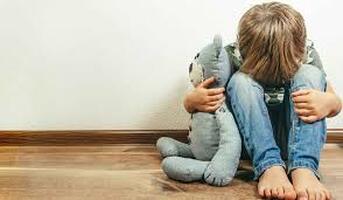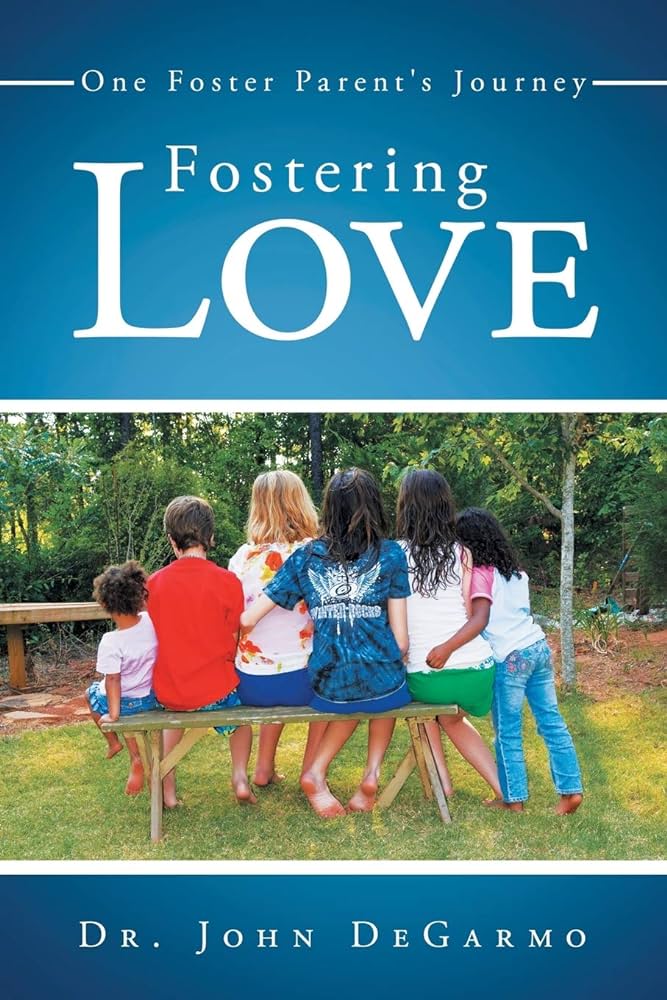
Children in foster care who suffer from these disorders will have great difficulty connecting with others, as well as managing their own emotions, not only during their childhood and time in foster care, but many times throughout the remainder of their lives. Emotional difficulties such as a lack of self worth, trust, and the need to be in control often result in the lack of unconditional and healthy parental love. As anyone who has worked with children in foster care will tell you, most of these children face an enormous amount of emotional issues, many times stemming from the lack of healthy love; the love of a parent figure.
Yet, love alone does not heal all wounds, and does not “fix” all things. Many of the children placed in our homes, as foster parents, will come to us with a variety of anxieties and disorders. According to a study by the National Conference of State Legislators, up to 80% of children in foster care have significant mental health issues. This is in comparison to about 20% of the general public.
Anxiety in children experiencing a disruption can manifest in a number of ways, perhaps none more frequently than separation anxiety, excessive concern over separation from home, family, and from those to whom they are most attached. Although children enter foster care through no fault of their own, they often suffer from mental health issues, some undiagnosed or caused by the initial separation from their first family.
Join the thousands who receive Dr. DeGarmo’s FREE foster care newsletter. Simply fill out the form below.
Many times, children placed into foster care suffer from mental health issues. A placement disruption may be so severe to the child that it feels as if their entire world is falling apart. For them, it is. Everything they know to be true in their world is now turned upside down. Their mother and father are no longer there to comfort them when they are troubled, or afraid. The family they lived with, grew up with, laughed with, and cried with is no longer there to take care of them. The bed they woke up in each morning is now different. Far too many children in foster care, the school they went to, the teachers they learned from, and the friends they had formed relationships with, have also been taken from them. Instead, these children now live with a strange family, wake each morning in a different house, sit in an unfamiliar classroom, and are no longer surrounded by those who love and know them best. Children in foster care often struggle to best deal with and survive these traumatic events, as they struggle to adjust to a new home and new family. To be sure, the losses in their life, along with the lack of a permanent home, oftentimes prevent these children from forming a secure and healthy attachment with a primary caregiver.
Issues from anxiety can manifest themselves in a number of ways. Perhaps the one that children in foster care face the most is separation anxiety, an excessive concern that children struggle with concerning the separation from their home, family, and to those they are attached to the most. Indeed, the more a child is moved, from home to home, from foster placement to another foster placement, or multiple displacements, the bigger the concern becomes. Those children who undergo many multiple displacements often create walls to separate themselves in an attempt to not let others into their lives. In attempting to do so, many children in foster care end up lying to their foster families, as they try to keep their new family at a distance, and at the same time, give the child a sense of personal control.
Other anxiety disorders include obsessive-compulsive disorder, where a child repeats unwanted thoughts, actions, and/or behavior out of a feeling of need. Panic disorders find a child experiencing intense bouts of fear for reasons that may not be apparent. These attacks may be sudden, and unexpected, as well as repetitive in their nature. Panic disorders also may coincide with strong physical symptoms, such as shortness of breath, dizziness, throbbing heart beats, or chest pains. Another anxiety disorder that foster children may face includes social phobias, or the fear of being embarrassed or facing the criticism of others. To be sure, as you care for children who have suffered from trauma in your household and with your family, it is likely that you will need to be able to help them as they struggle with some form of anxiety.
-Dr. John
Order a signed copy of the best selling foster parenting memoir today! Fostering Love: One Foster Parent's Journey. Order it HERE



 RSS Feed
RSS Feed